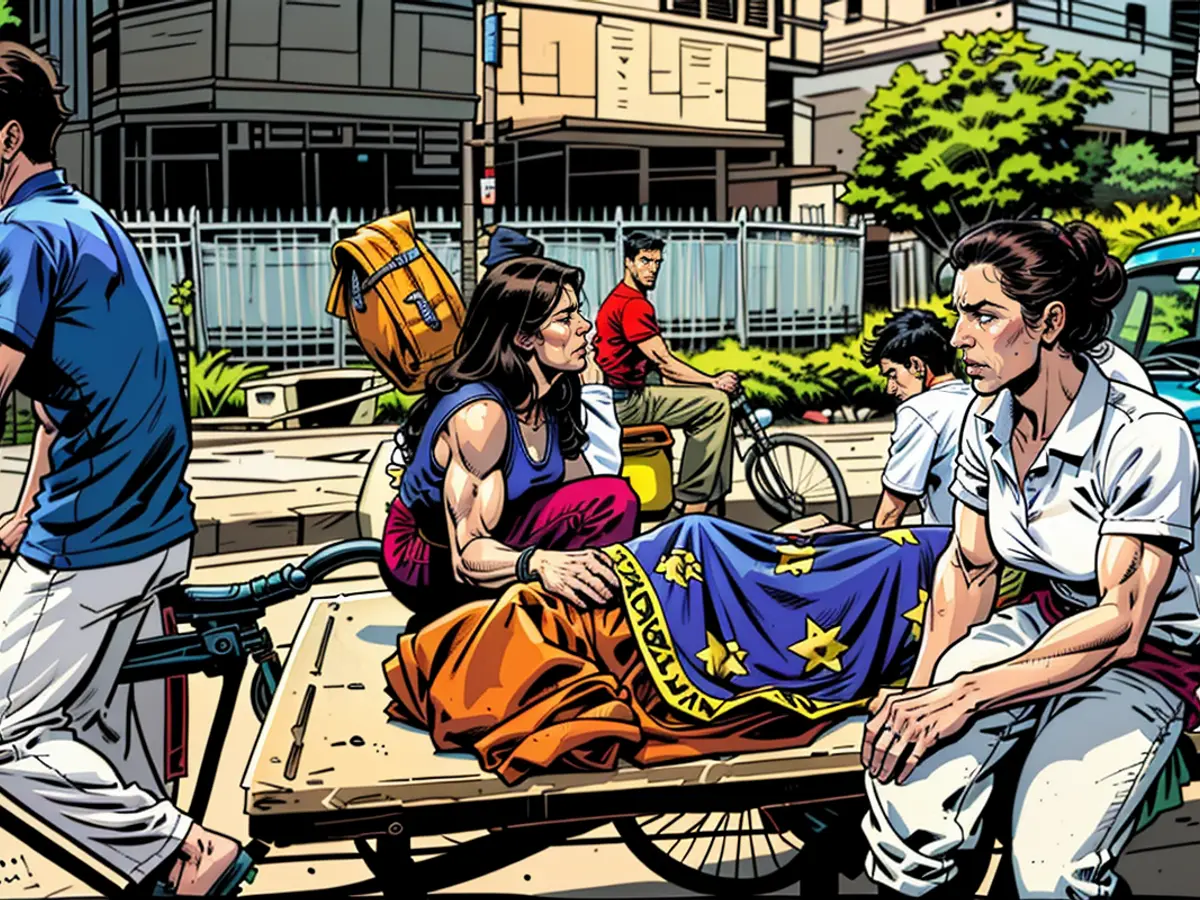Bangladesh: Students for Nobel Prize winner Yunus as head of transitional government
The "internationally recognized" Yunus, who "enjoys broad acceptance," could be a leading advisor to an interim government," said Nahid Islam, leader of the student union SAD, in a video message. "We trust Dr. Yunus," explained Asif Mahmud, another SAD leader.
Sheikh Hasina, who has ruled for 15 years, fled the South Asian country on Monday. Army chief Waker-Uz-Zaman announced the formation of an interim government. "It's time to end the violence," the army chief emphasized.
At least 113 people were killed in violent protests against Hasina's government on Monday alone. It was the bloodiest day since the start of the mass protests in early July. According to AFP figures, at least 413 people have been killed in total.
Originally, the protesters were against a quota system for job allocation in the public sector, which they believed favored Hasina's supporters. Over time, the demand for the resignation of the prime minister who has been in power since 2009 became the main goal of the protest movement, with more and more people from all walks of life joining in.
With the dissolution of parliament, President Mohammed Shahabuddin met a central demand of the students and the main opposition party, Bangladesh National Party (BNP). Shortly before the announcement of the dissolution of parliament, the opposition leader and former prime minister Khaleda Zia was released from house arrest. "She is now free," said BNP spokesman A.K.M. Wahiduzzaman. The party demanded fresh elections within three months.
The 78-year-old Zia is a bitter rival of Hasina. The politician was sentenced and imprisoned for corruption in 2018 before being placed under house arrest due to illness. The families of both women have dominated Bangladesh's politics since independence in 1971.
The 84-year-old Yunus, who founded the Grameen Bank in the 1980s to provide microloans to the poorest people in Bangladesh, was awarded the Nobel Peace Prize in 2006 for his work.
Yunus did not initially comment on the students' wish to make him the head of the interim government, but he told the Indian newspaper "The Print" that Bangladesh had been "an occupied country" under Hasina. "Today, all people in Bangladesh feel liberated."
Hasina was re-elected in a controversial election in January. Her government has been accused of abusing state institutions to maintain power and suppressing government critics, even resorting to extrajudicial killings of opposition members.
In recent weeks, millions of people have taken to the streets demanding her resignation, with clashes between her supporters and opponents and security forces firing into crowds.
On Tuesday, important police unions announced a strike until the security of every police officer is ensured. At the same time, they apologized for the police's actions against the protesters.
Meanwhile, mothers of some of the hundreds of political prisoners secretly detained under Hasina were waiting outside a building of the military intelligence agency in Dhaka. The situation in the capital has since calmed down.
Indian Foreign Minister S. Jaishankar confirmed that Hasina had fled to India and added that his country remains "deeply concerned" until "law and order" is "clearly" restored in Bangladesh.
The student union SAD, led by Nahid Islam and Asif Mahmud, expressed their trust in Dr. Yunus, suggesting he could advise the interim government. With the dissolution of parliament, the main opposition party, Bangladesh National Party (BNP), expressed satisfaction as their central demand was met.







